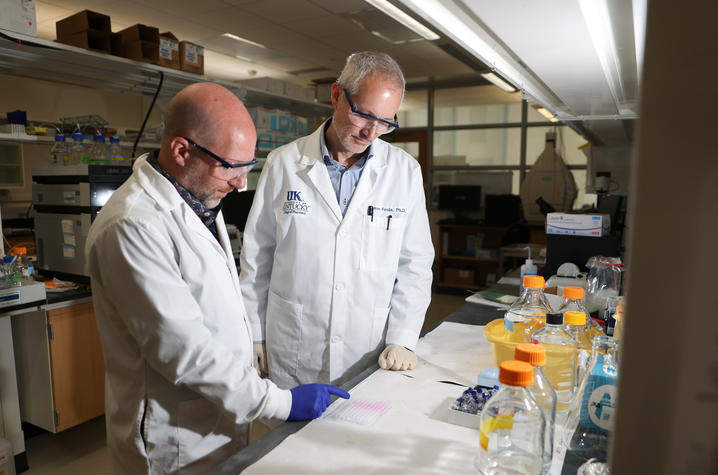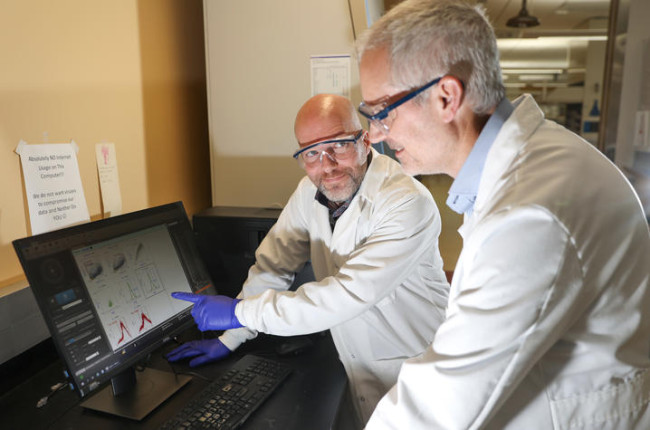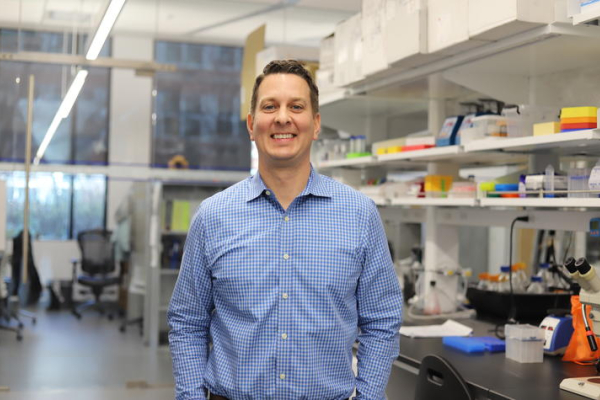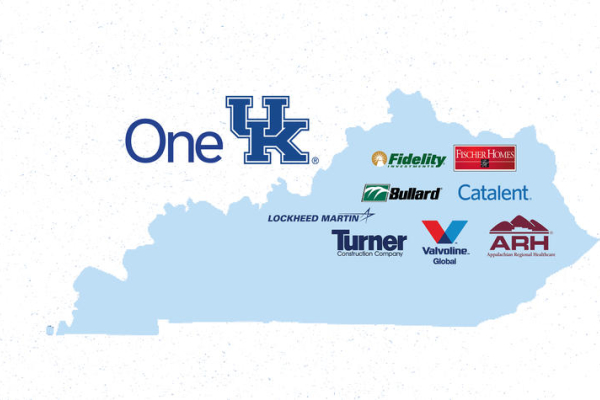Helping the heart heal itself — UK researchers lead new treatment effort

It’s a frightening statistic: someone in the U.S. has a heart attack every 40 seconds. For many Kentuckians, the risk is even higher due to widespread health challenges like obesity, smoking and chronic illness.
At the University of Kentucky, two researchers are tackling what comes next — the often-overlooked damage that unfolds in the days and weeks after a heart attack. Their work could redefine how recovery happens, offering new hope for healing hearts in Kentucky and beyond.
Vincent Venditto, Ph.D., associate professor of pharmaceutical sciences, and Dave Feola, Pharm.D., Ph.D., professor of pharmaceutical sciences and assistant dean of graduate studies at the UK College of Pharmacy, have been awarded a two-year $1 million grant from the National Heart, Lung, and Blood Institute of the National Institutes of Health (NIH) to develop a new therapy for one of the lesser-known but most dangerous consequences of a heart attack: post-heart attack inflammation.
After a heart attack, the body launches an intense immune response to clear damaged tissue. While some inflammation is part of the healing process, too much of it can actually cause further harm. That prolonged immune reaction can weaken the heart, delay recovery and even lead to heart failure.
“There are currently no approved treatments that specifically target this kind of inflammation,” said Venditto. “That’s the gap we’re trying to fill.”
The UK team’s approach uses azithromycin, a well-known antibiotic, in a completely new way. By packaging it in liposomes — tiny, bubble-like structures — they aim to deliver the drug directly to the heart where it’s needed most. Early data suggests this method can help calm the immune system, reduce harmful inflammation and support healthy recovery.
This NIH-funded project is part of a two-phase initiative designed to move promising lab findings toward clinical trials. The team will first refine the treatment in preclinical models to determine the optimal dose, duration and formulation. If successful, their work could pave the way for human trials — and, eventually, new treatment options for heart attack patients across the country.
“This work has the potential to change how we treat heart disease,” said Feola. “We’re not just treating symptoms — we’re aiming to change the way the body regulates heart tissue damage.”
The research aligns with the University of Kentucky’s broader mission through the Advancing Kentucky Together initiative, a bold effort to improve the Commonwealth’s health and well-being by targeting the state’s most pressing health challenges.
“At UK, we believe the health of Kentucky is the foundation for everything else — education, workforce, quality of life,” said Venditto. “This grant is not just about the science; it’s about creating healthier futures for the people we serve.”
“This kind of progress doesn’t happen in a vacuum,” added Feola. “It takes collaboration — across disciplines, with our communities and with national partners like NIH. We’re proud to be doing this work in — and for — Kentucky.”
Research reported in this publication was supported by the National Heart, Lung, and Blood Institute of the National Institutes of Health under Award Number R61HL177474. The content is solely the responsibility of the authors and does not necessarily represent the official views of the National Institutes of Health.



